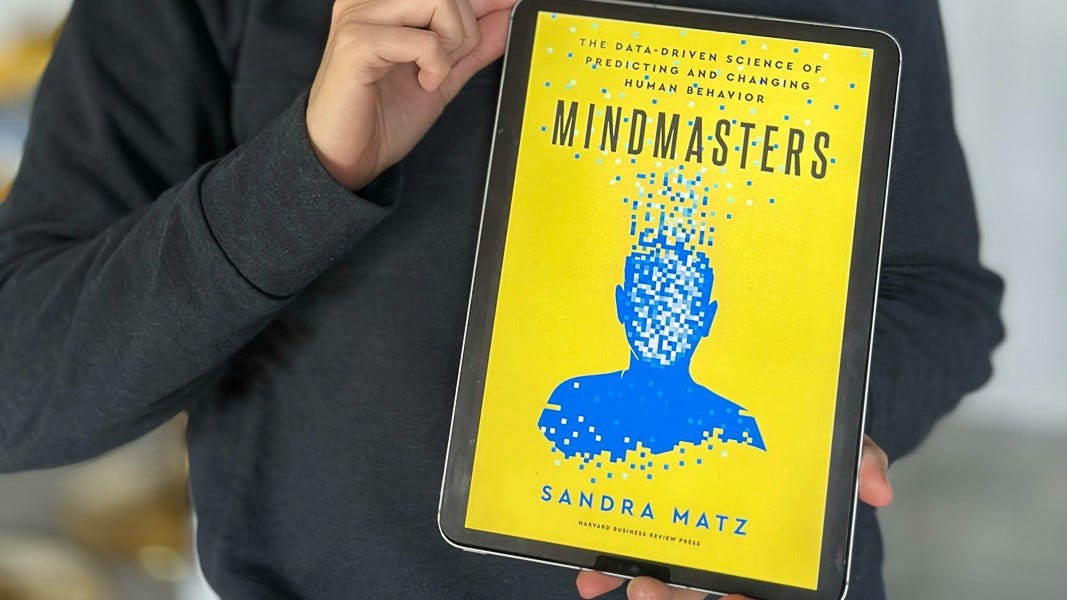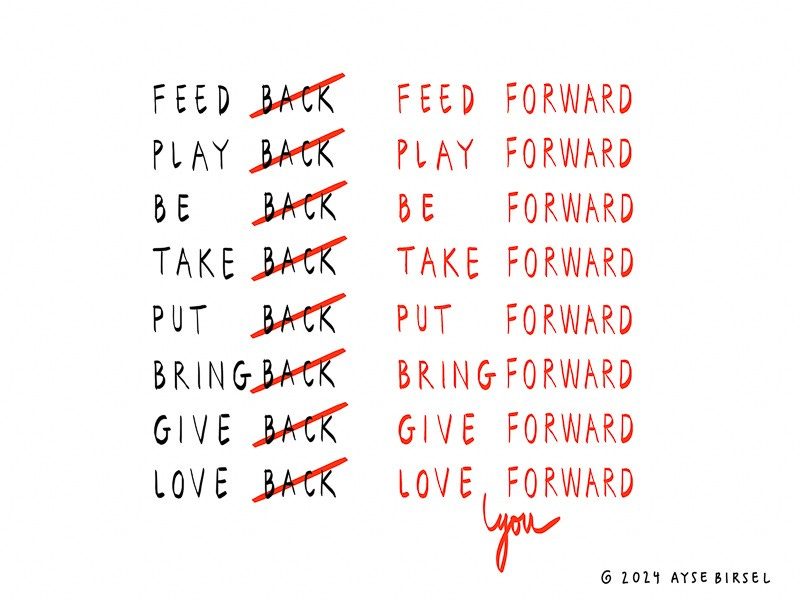New Year's Daily Resolution
Another new year, another season of fresh resolutions. In and of themselves, these resolutions feel noble; we aspire to bring about positive change in ourselves and our lives. But the positivity of the first few weeks of the year is quickly followed by the regret of failure. Have you ever wondered what it means that most people fail to achieve their New Year's resolution? Here is one often used "statistic": "80 percent of people drop their resolutions by the second week of February." Or this one: Strava, based upon 800 million users logged activities, predicts that most people will quit by January 19th. They call it "Quitter's Day."
It doesn't have to be this way; I will tell you how to shift the narrative. The approach is based on Marshall Goldsmith with Mark Reiter's classic book Triggers. The book details an approach to asking yourself daily questions that trigger positive change. I have been doing the Daily Questions process with Ayse (Eye-Shay) Birsel for over four years now, and I feel like I can change almost anything I commit to change. At the core of Triggers is a reframing of how we create change, and that's where the new approach to New Year's resolutions comes in. Here is the new approach:
Choose something you want to change in 2025. Make it something that is observable and that you can examine daily. Then, every day, give yourself a 1 to 10 score of how well you tried to accomplish it (the key word is “tried” - intentions do matter, according to Marshall). Look at your score at the end of the year and see how you did. If you arrive at the end of the year with a score - you have accomplished your New Year's resolution!
Sounds simple, right? It is. For four years I have been testing this, and here are some examples of what I have been doing. Test #1: I have a natural sweet tooth and "need" dessert after dinner. My test resolution: Did I try my best to avoid processed desserts after dinner? Average score: 8.6 (6 out of 7 days). Test #2: Did I try my best to get 8 hours of sleep last night? Average score: 9.0. Test #3: Did I try my best not to watch TV/movies on Saturday? Average score: 6.0. I plan to carry these habits into 2025 and perhaps add a few more.
Perhaps you are thinking - wow! You have stopped eating dessert 6 out of 7 days a week, impressive! (That's what I'm thinking; I didn't think I would make it four days!) Or maybe you are thinking - barely over 50% of the time, you stick to your goal of not watching TV on Saturday; what's that about? Here is the real bottom line: in keeping this up for a year, I have avoided over 300 desserts and spent 26 Saturdays filling my free time with something other than TV. It's not all or nothing. It's about succeeding by trying. It's about not having to stop because you missed one day. Every day is a new fresh start and a chance for success.
Try it out and see if it works for you. I will warn you that it is simple but not easy. It takes discipline to track and review progress consistently. If you'd like to try the Daily Questions process, I would recommend you find a friend to do it with. You'll spend less than 10 minutes on the phone daily asking each other your questions. You write the questions; you give the answers. A little external accountability goes a long way.
I'd like this to be a movement where we celebrate our accomplishments and slough off our imperfections. Since your measure of success is trying every day, there is no failure. Whatever you accomplish at the end of the year is better than if you did nothing. Please pass it on, and let me know how you do! And I wish you and those you love a year of health, happiness, and magic.
With love, gratitude, and wonder.
Scott
In a World Obsessed with Speed: Play Like Luka by Mike Mackie
My friend Mike recently wrote an insightful piece about Luka Dončić, the NBA superstar known for his unique playing style. Unlike many of his hyper-athletic peers, Dončić thrives by imposing his own pace on the game. He never rushes or makes careless mistakes, emphasizing control over speed. He argues that Dončić's ability to stay calm, present, and in sync with the game while remaining unbothered by its chaos is what sets him apart from players who rely solely on athleticism.
Mike draws a parallel between Dončić's approach and life, noting that we often mistake speed for progress. We rush through tasks, conversations, and decisions, believing that faster means better. However, as Dončić demonstrates, true greatness comes from finding your own flow—balancing long-term strategies with short-term adaptability, making deliberate choices, and avoiding unnecessary friction. He suggests that by resisting the urge to speed through life, we give ourselves space to observe, understand, and respond thoughtfully, ultimately finding our own unique pace.
Reverse-Engineering Nikki Glaser's Masterful Emceeing of the Golden Globes by Sam Horn
My friend Sam Horn shared an insightful analysis of Nikki Glaser's hosting performance at the 2024 Golden Globes. Drawing from her extensive experience moderating conferences and events, Sam highlighted how Glaser masterfully commanded the room through a combination of meticulous preparation and natural charisma. She particularly praised Glaser's commitment to rehearsing her monologue 93 times and her collaborative approach in workshopping material with seasoned comedians like Seth Myers and Jimmy Kimmel.
What stood out in Sam's assessment was her appreciation for Glaser's ability to balance professionalism with authenticity. She noted how Glaser embodied the principles of great writing and public speaking, from Elmore Leonard's advice about concision to the importance of reading the room and maintaining accessibility. Sam emphasized that Glaser's success came from her understanding that an emcee's role is to serve the show rather than dominate it, creating an inclusive atmosphere that elevated the entire event through well-timed, relevant commentary.
Mindmasters: The Data-Driven Science of Predicting and Changing Human Behavior by Sandra Matz
Robert C. Wolcott suggested I read Sandra Matz's new book "Mindmasters," and I'm incredibly impressed by how she tackles the double-edged nature of psychological targeting and big data. Her work reveals how the unprecedented amount of digital information available today isn't just a collection of random data points, but rather a detailed map of human psychology that can be used to influence our decisions and behaviors. She presents a nuanced perspective that moves beyond the simple "good versus evil" narrative often associated with data collection and algorithmic influence.
What I find most compelling about Sandra's approach is how she balances the serious concerns about data manipulation with the potential benefits this technology could bring to society. While she doesn't shy away from exploring scandals like Cambridge Analytica, she also highlights how the same targeting mechanisms could improve mental health outcomes and help people make better financial choices. Her expertise from Columbia Business School shines through as she outlines practical strategies for individuals to maintain agency over their digital footprint while still benefiting from technological advances. I love this stuff!!!














